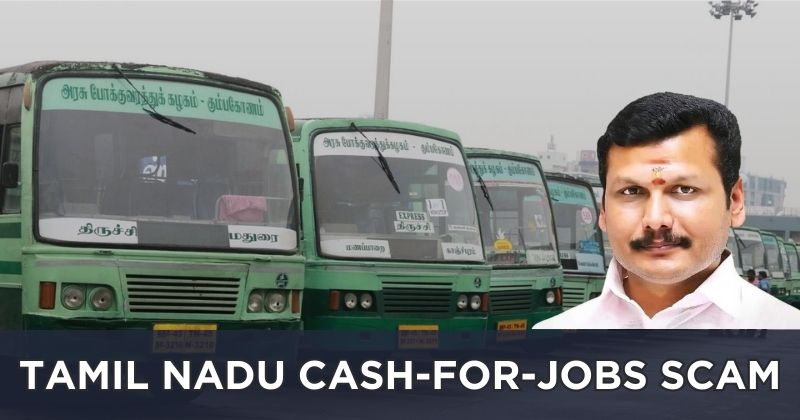On June 28, the Principal Sessions Court, Chennai, extended the judicial custody of DMK Minister V Senthil Balaji till July 12. Balaji was produced before the court through video conferencing.
The case concerns the ‘Tamil Nadu Cash-for-Jobs Scam,’ wherein it was alleged that the DMK Minister and certain government officials accepted bribes in exchange for appointments to the state transport corporation between 2011 and 2015.
On June 14, the court remanded the accused Minister into judicial custody for two weeks, which ended on June 28. On June 16, the court refused bail to Balaji and noted that the accused was not cooperating with the investigation, as he refused to receive and sign the grounds of arrest.
The court said, “The provisions of PMLA have given an overriding effect upon any other law and further explicitly mentions that any provisions of the Code of Criminal Procedure, which are inconsistent with the provisions of this Act, which deal with attachment, confiscation, investigation and prosecution shall not apply,” in its June 16 order.
However, the court, in view of the Supreme Court’s observations in Satyendar Kumar Jain’s case, refused to grant interim bail to the DMK Minister on medical grounds in the June 16 order. The court said, Keeping in view of the observations of the Hon’ble Supreme Court of India in respect of granting of interim bail on medical grounds and the fact that the accused being admitted in a hospital from the time of his arrest and shifted to another hospital of his choice and now under treatment and also considering the nature and gravity of the offence said to have been committed by the accused, the court is of the view that he may not be released on interim bail on medical grounds as prayed for by him.”
Background
On May 16, the Supreme Court of India set aside the Madras High Court’s order directing a fresh investigation into the Tamil Nadu Cash-for-Jobs Scam, where it was alleged that V Senthil Balaji and certain government officials accepted bribes in exchange for appointments to state transport corporation between 2011 and 2015.
The Supreme Court said that the Investigating Officer probing the case could continue their investigation and that a request for a Special Investigation Team (SIT) can be considered at a later stage. The court said, “The directions issued for the de-novo investigation are set aside. The investigating officers are to proceed with further investigation in all cases, by including the offences under the Prevention of Corruption Act.”
The Madras High Court had directed a fresh investigation, stating that the ED’s investigation failed to secure crucial forensic evidence. Furthermore, the Madras High Court said that the ED’s investigation suffered due to multiple petitions and applications filed against it in several courts by Senthil Balaji and other connected parties.
The Tamil Nadu Government conducted recruitment for various posts in state transport corporations between 2011 and 2015. It was alleged that then-Transport Minister Senthil Balaji took bribes for the appointments.
The ED registered four cases concerning the alleged scam, wherein two cases pertained to irregularities in the appointment of bus conductors and the other two concerned irregularities in the appointment of drivers and junior engineers. Senthil Balaji moved the Madras High Court seeking discharge from the cases and contended that he was a victim of ‘political malice’ as he defected from AIADMK to the DMK, however, the court rejected the contention.
The Tamil Nadu Government conducted recruitment for various posts in all transport corporations falling under the state government’s purview around 2011 and 2015. The ED registered four cases in connection to the scam and Senthil Balaji was accused in all of them.




















Comments